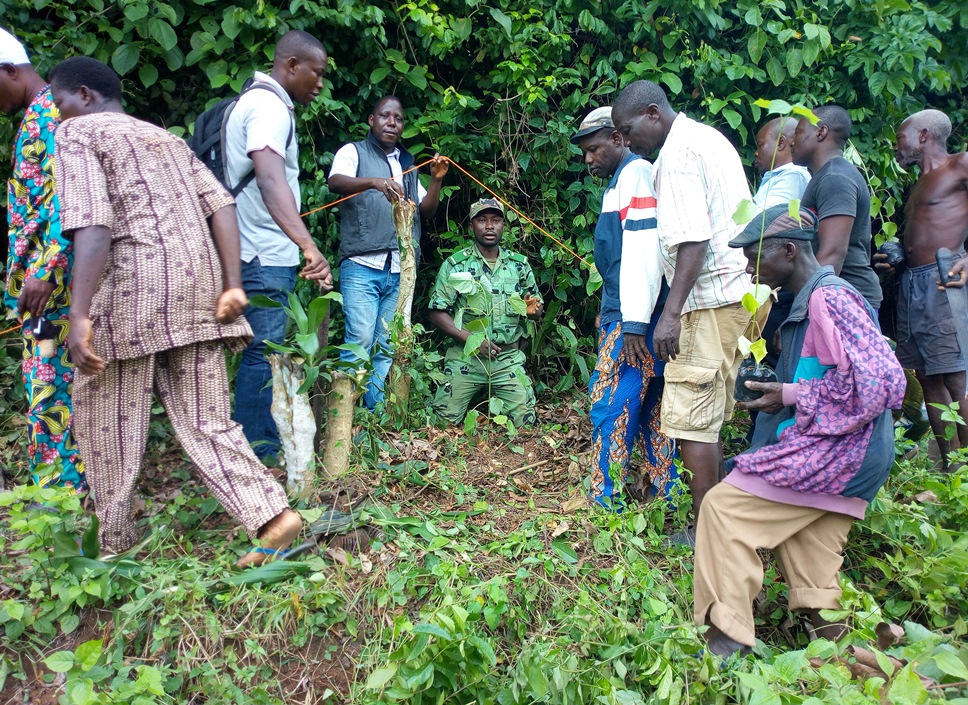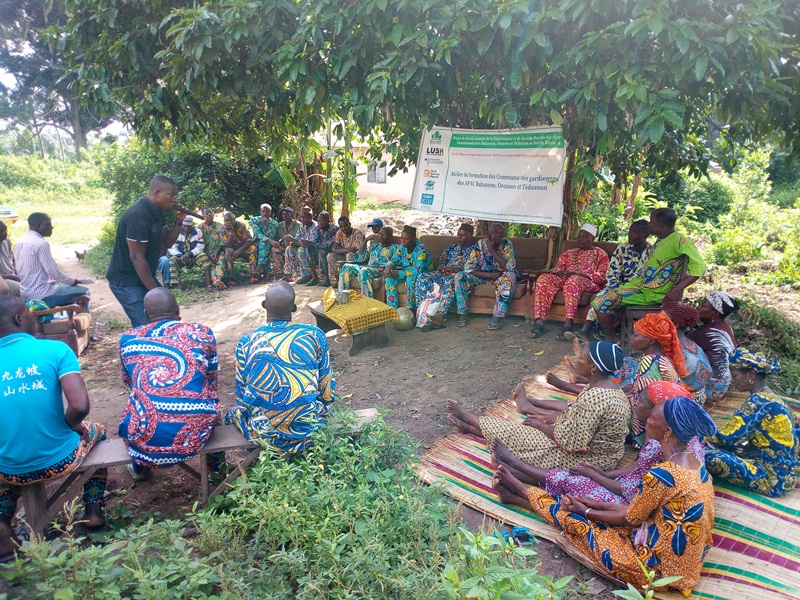Orozoun, Bénin
Description
The sacred forest Orozoun is a dense, semi-deciduous humid forest. Orozoun offers a diversity of flora and fauna. There are 99 species of flora. In addition to a variety of reptiles, amphibians, molluscs and insects, there are 13 species of avian fauna. The forest is surrounded by an indigenous community, the Nago de Lindja-Dangbo, made up of approximately 13,959 people. History and Activities The Nago de Lindja-Dangbo community uses the forest mainly for cultural and religious purposes. The forest is of great importance to the community because it shelters the deity Oro, who is venerated and adored by several family communities.

Conservation
The Nago de Lindja-Dangbo use the resources of Orozoun for cultural purposes. Indeed, they seek to safeguard tradition and share the riches of the forest with future generations. They sustain local practices and work to preserve their sacred sites. This ICCA also seeks to maintain and enhance its natural resources, as well as to enhance land ownership security. The community would like to bring more ecotourism to the ICCA to support its conservation efforts. Nonetheless, Orozoun faces several threats to these objectives, biodiversity decline among them. Climate change, development and other human pressures are all exacerbating Orozoun’s biodiversity decline.
Governance and Management
Orozoun ICCA belongs to the Nago community, and is recognized by subnational and civil society laws. It is governed by a council of indigenous peoples, as well as by a council of the local community government set up with the support of the NGO AMAF-BENIN. A seat on the council of indigenous peoples is inherited or obtained by consulting the Fâ. Orozoun is managed by a local management committee, a community group of 20 families. They all have a history and a relationship with the forest and conserve it on the basis local customary laws and practices. The Nago de Lindja-Dangbo have legal rights to all resources within Orozoun, though with certain constraints relating to gender and age.

Next Steps
There is still much support which would be welcome by this ICCA. There is the need for enhanced health and education services, as well as for more equipment and greater technical capacity. The community would like support for strengthening their own capacity, as well as support for facilitating greater collaboration with other ICCAs. They also would welcome the opportunity to develop partnerships for development initiatives – including ecotourism development – and sustainable livelihoods. Finally, the Nago de Lindja-Dangbo are in need of financial assistance from NGOs or governments, as well as support for forest restoration.
This case study was originally published by UNEP-WCMC in May 2020. The content was provided by the custodians of this ICCA. The ICCA has been self-declared and has been through a peer-review process to verify its status. More details on this process can be found here. The contents of this website do not necessarily reflect the views or policies of UN Environment Programme or WCMC